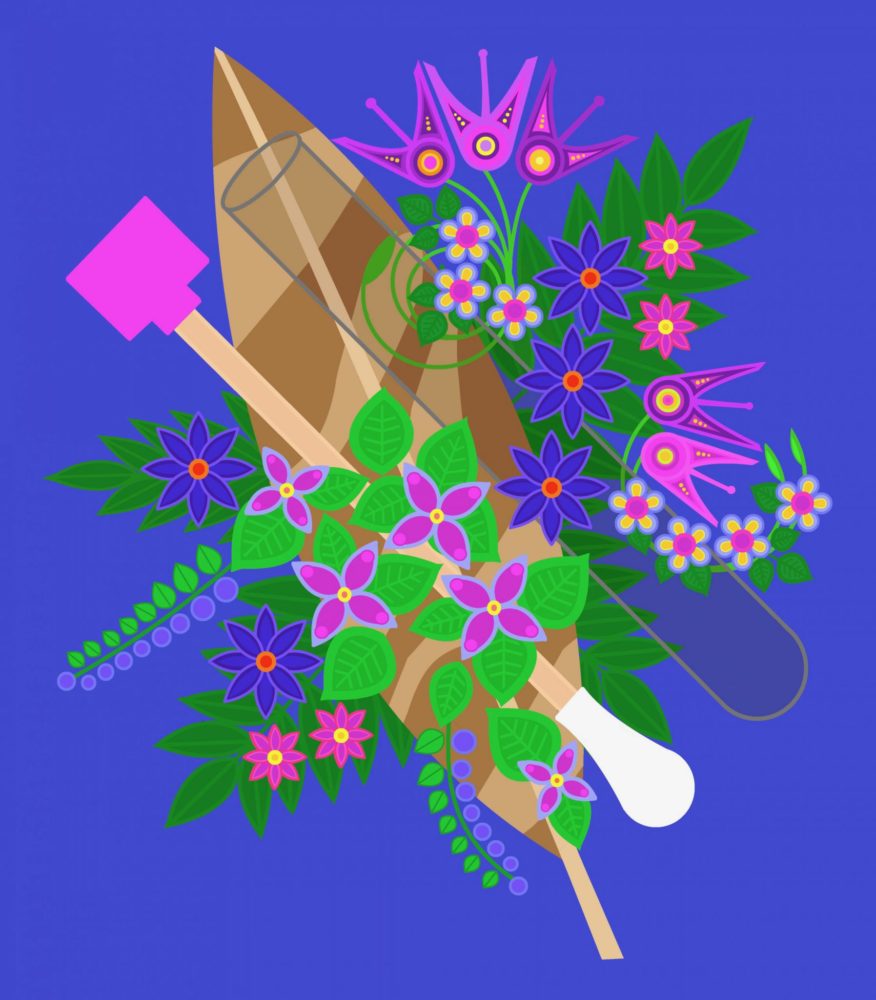Editor’s note: This article has been adapted from its original publication in the College of Physicians and Surgeons of Alberta site.
What is a swab?
To us physicians, the swab is knowledge. Accessing and possessing knowledge offers options, opportunities, ownership and control in health and health-care delivery. Knowledge is power. A throat or nasopharyngeal swab in the COVID-19 context offers knowledge and information about individual and population health and the well-being of communities.
But what does this same swab represent to Indigenous peoples? In stark contrast, a swab for many Indigenous peoples represents both layers of colonial legacies and the ongoing realities of contemporary coloniality.
Euro-Canadian non-Indigenous medicine has, unfortunately, been complicit in both historical legacies and present-day colonialism. This is well documented and reaches back to historic biological warfare undertaken through intentional introduction of pandemics, including smallpox-contaminated blankets. The smallpox epidemic resulted in a 75 per cent mortality of Plains Indigenous peoples. Euro-Canadian non-Indigenous medicine supported scientific experimentation on non-consenting patients in Indian hospitals, including the Edmonton Charles Camsell Hospital. Euro-Canadian non-Indigenous medicine played a key role in the targeted gender violence and violation of body sovereignty through the Alberta Sexual Sterilization Act.
Thus, to many Indigenous peoples, a swab represents colonial Euro-Canadian medicine. In the present day, the swab represents Indigenous individuals and communities being denied access to, and possession of, knowledge. A swab often represents being denied access to options, opportunities, ownership and control in our health and health-care delivery as Indigenous peoples. It represents morbidity and mortality.
A swab represents colonialism itself.
How do we as physicians approach the paradox of the swab? How do we decolonize the swab? How can we practice as partners with Indigenous patients during the COVID-19 pandemic?
I believe as physicians and surgeons of Alberta we can be national and international leaders in delivering culturally safe and patient-centred care to Indigenous peoples, families and communities. To do so, we must acknowledge and reconcile three key barriers.
First, Euro-Canadian non-Indigenous medicine often oppresses Indigenous strengths. Euro-Canadian medicine is inherently deficit and disease defined: physicians must identify risks to mitigate them. The focus on risks and deficits often devalues strengths and protective factors. In contrast, Indigenous approaches to health and wellness often are strengths and protective factor defined. Adapting our understanding of Indigenous peoples and their health to a strengths-based vision that shifts clinical rhetoric from pathology to wellness will allow us to identify protective factors that can, and do, mitigate risk.
Second, Euro-Canadian non-Indigenous medicine has a past rooted in targeted colonial violence. Euro-Canadian medicine has acted as an agent of colonial agendas. This legacy is not often explicitly explained during medical training but is foundational to mistrust and tension between many Indigenous peoples and the Euro-Canadian health-care system. Understanding oppressive legacies of colonial agendas that remain within health-care systems will offer us the opportunity to change them.
Finally, Euro-Canadian non-Indigenous medicine bestows power and privilege. Reflecting, within the therapeutic alliance, on our social locations as physicians is the first step towards decolonization. By acknowledging and accepting that there are things we don’t know, we create space within ourselves for humility – within this context, cultural humility. Divesting our power and privilege from the encounter and offering ownership and control to Indigenous patients and their families creates spaces needed for self-determination. Holding space within our clinical encounters for Indigenous self-determination, including Indigenous knowledge and practices, cultural reclamation and language revitalization, is decolonization in practice. This space is what some Indigenous elders refer to as “ethical space.”

"Hawk reminds us to take a wider view so we can see everything. This is very important when we look at clinical relationships. Clinicians must consider everything in the life of the patient. As such, they must look out of the four walls of the clinic to truly be effective in clinical relationships. This includes having a fundamental understanding of the history of colonialism and how it impacts the health outcomes of Indigenous people and populations.” – Lisa Boivin, artist
My calls to action are threefold.
First, we must authentically explore and disrupt physician power and privilege by engaging in reflective practice – a micro-skill that should be integrated into our daily practice – and cultural humility. In anticipation of a patient encounter, it asks us to consider our agency – the power and privilege that comes with this, the partnership with patients in their own health and wellness, and ways we can offer equality therewithin.
Cultural humility is a type of reflective practice. It, too, is a micro-skill that should be integrated into our daily practice. In anticipation of an encounter with an Indigenous patient, it asks us to consider the inter-cultural partnership in the health and wellness of the patient and how we may not be the experts in the encounter. Our actions and agency are, therefore, guided by the patient.
Second, we must understand and appreciate both the colonial and Indigenous contexts within medicine by engaging existing professional development opportunities and advocating for further Continuing Medical Education curriculum development. Indigeneity, identifying as Indigenous, is listed as a risk factor in the social determinants of health. As an Indigenous person, my response to this is that my Indigeneity is not a risk factor in my health outcomes. It is a protective factor. Exposure to colonialism – to genocide and to racism – is the true risk factor. To list race and Indigeneity as a detrimental social determinant of health is misinformed. It is a direct by-product of the deeply rooted colonial views entwined in health care.
Finally, we need to co-create and actively hold ethical space with patients, families and communities by learning and taking the lead from Indigenous peoples in their own health and wellness.
A swab represents colonialism itself. How do we decolonize the swab?
We must clean our intellectual houses of our implicit biases, make space within ourselves and fill it with new perspectives, knowledge and practice.


The comments section is closed.